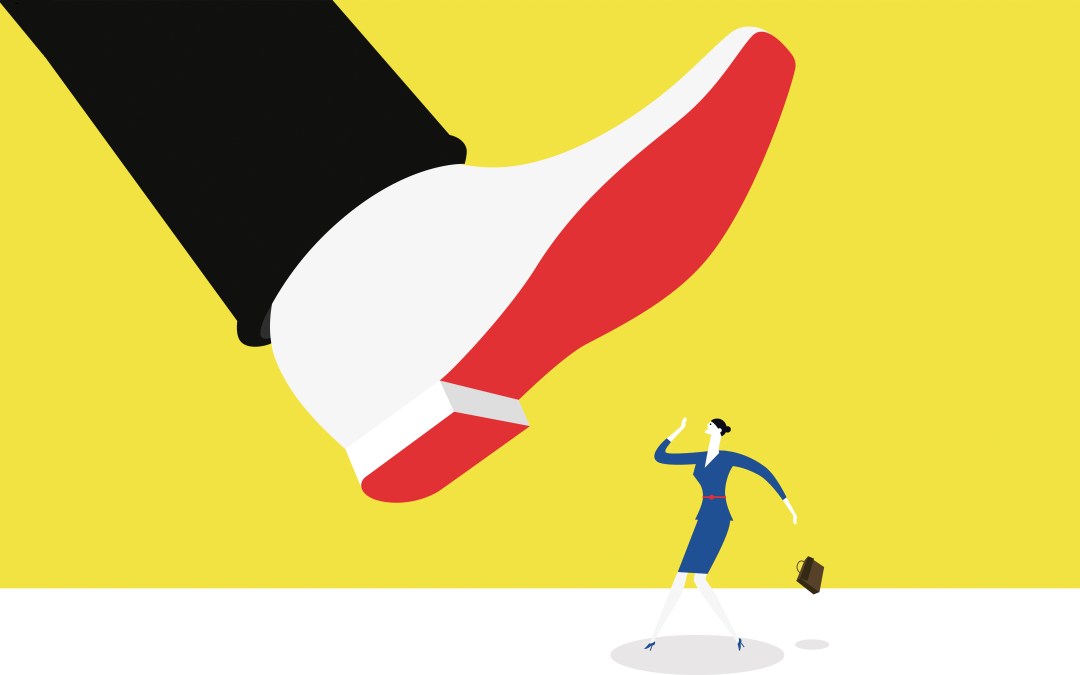Confront your fears: bullies in the office
Accountant, Susan Pierce, let her fear of bullies drive her out of the office

I’ve encountered my share of workplace bullies, and my decision five years ago to become a freelancer came partly from a desire to avoid them. But, looking back, I can see that the majority of my colleagues were lovely, and I liked working in a team. I resent that I allowed my fear of a few awkward types to restrict my options.
Coach Annie Ashdown, an expert in dealing with difficult people – ‘These are my busiest talks!’ – asks questions about my childhood (punitive), and points out the internal dynamic that this created: ‘bad girl – shame – trepidation – fear’.
If someone criticises me, or is angry with me, I assume it is in some way justified and slip into a shame response. This is common, says Ashdown. ‘We think they must be right. But, 90 per cent of the time, these people are just throwing their unprocessed crap at us.’
The first front for development is self-confidence, which shortcuts this response and the bullying dynamic. ‘Be very clear that it is not you who is defective, and then shame will pass through you. Often it is about saying to yourself: “You do not speak to me like that.” The person we really have to convince is ourselves.’
Survival mode – putting up with it by minimising or denying what is happening – is common, but doesn’t work. ‘Every time we let someone do this to us, we are crushing our confidence and self-esteem. You have to work out and be clear with yourself what is acceptable. You need bottom lines – you cannot do this. Also, top lines – “I will treat myself with respect; I will be treated with respect.” The more we build ourselves, the less these people come around us,’ says Ashdown.
I talk through a few unpleasant experiences from my past: a colleague who repeatedly cut me down with disparaging comments in meetings; and a manager who, when I made a tiny mistake, sent me a disproportionately unpleasant email, which left me in terror of doing my job, for fear of getting anything wrong again.
‘It is 100 per cent not OK to do those things in that way,’ Ashdown reassures me. ‘Remember that the people who behave like this are much more insecure than you are. They’re terrified.’ She speculates that the first colleague was projecting her own insecurities onto me – and, it is true, her cutting remarks related to shortcomings that were more hers than mine. And the manager? ‘Very insecure. I feel sorry for him.’
I read Ashdown’s book on building confidence and, before too long, I am putting my new skills to the test with a difficult client. I need to ask her some details about a project, and she is snappy, clearly irritated by my questions. My shame-dread response kicks in and I feel stupid, but I pull myself up. Why am I giving myself a hard time? I need to speak to this woman to do the job that she has hired me to do. I swallow my instinct to placate her or apologise and say, ‘Why not call me when you have time to discuss this?’ She backs down.
Ashdown gives me some parting advice: ‘Don’t let another person’s thoughts and actions define you. In the morning, wrap yourself in imaginary Teflon. Remind yourself that, whatever you come across, nothing is going to stick to you.’
Annie Ashdown is a keynote speaker, hypnotherapist and coach specialising in success, and is author of the bestselling The Confidence Factor (Crimson Publishing, £12.99).
Illustration: iStock








